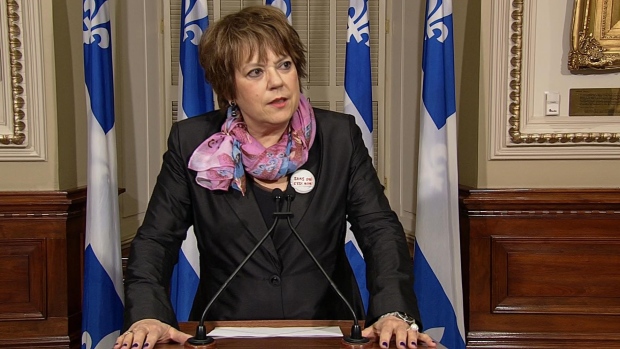At a press conference on Aug. 21, Higher Education Minister Helene David announced that Quebec will invest $23 million into a new five-year sexual assault prevention strategy for university campuses across the province. In the announcement, David also expressed her plans to draft provincial legislation pushing universities that currently lack sexual violence policies to create them.
How this legislation will affect McGill, which passed its Policy against Sexual Violence less than one year ago, remains unclear. Dean of Students Christopher Buddle and Associate Provost Angela Campbell provided a joint statement on the announcement in an email to The McGill Tribune.
“Minister David’s announcement of a new Intervention Strategy for Preventing and Countering Sexual Violence in Higher Education is an important and welcome step forward for all universities in the province as we strive to address the significant challenge of campus sexual violence,” Buddle and Campbell wrote. “McGill’s Policy against Sexual Violence, as well as our Office for Sexual Violence Response, Support and Education, both established in 2016, have been critical to McGill’s own developments on this front.”
Buddle and Campbell confirmed that the current McGill policy will be subject to further review by the Committee for the Implementation of the Policy against Sexual Violence. The Committee will hold an open panel to elicit feedback on the policy from the McGill community this fall.
Buddle and Campbell also expressed their plans to review the Code of Student Conduct and Disciplinary Procedures, the set of rules and punitive processes that apply to McGill students who commit academic offences, such as plagiarism and cheating, and non-academic offences, such as theft of university property and assault. The reviewal process could lead to amendments to the Code of Conduct that ensure that it best serves students’ needs.
SSMU President Muna Tojiboeva and SSMU VP External Connor Spencer also shared a joint statement with the Tribune about the Quebec government’s new initiative. While Tojiboeva and Spencer welcomed the action, they also made it clear that they take issue with the process that led to this investment.
“Our reservations stem from the consultation process that lacked accountability, intersectionality, and the centralization of voices of persons who have experienced sexual assault (PWESA) within the consultation processes,” Tojiboeva and Spencer wrote. “We want to acknowledge that the policy is well-intentioned, but that until we see the promised bill, we are wary of the efficacy of the provincial strategy.”
The issue of sexual and gendered violence at McGill became prominent in Winter 2017 after the resignations of the then SSMU VP External David Aird and President Ben Ger in response to allegations of sexual and gendered violence. Additionally, the off-campus assault of former McGill student Kathryn Leci raised question about the limitations of existing McGill policies for handling cases of gendered violence within the student body.
The Community Disclosure Network (CDN), an anonymous group of survivors and allies that provides a space for disclosures about acts of sexual violence, has been a vocal advocate for reform of McGill’s Sexual Violence Policy, and were the first to call for former SSMU VP external David Aird’s resignation. In an interview with the Tribune, an anonymous representative of the CDN echoed Tojiboeva’s and Spencer’s concerns about the lack of inclusivity in the consultation process.
“Until we see what the actual bill is, we don’t actually know what they’re going to release, and until that time we remain very wary,” the CDN representative said. “[Included in consultation] was mostly mid-level educators and ministers deciding what to do about [the sexual violence policy]. The same thing happened with McGill’s policy, which was very well intentioned, but the voices who were making the decisions were not those who are affected by sexual violence on campus.”







